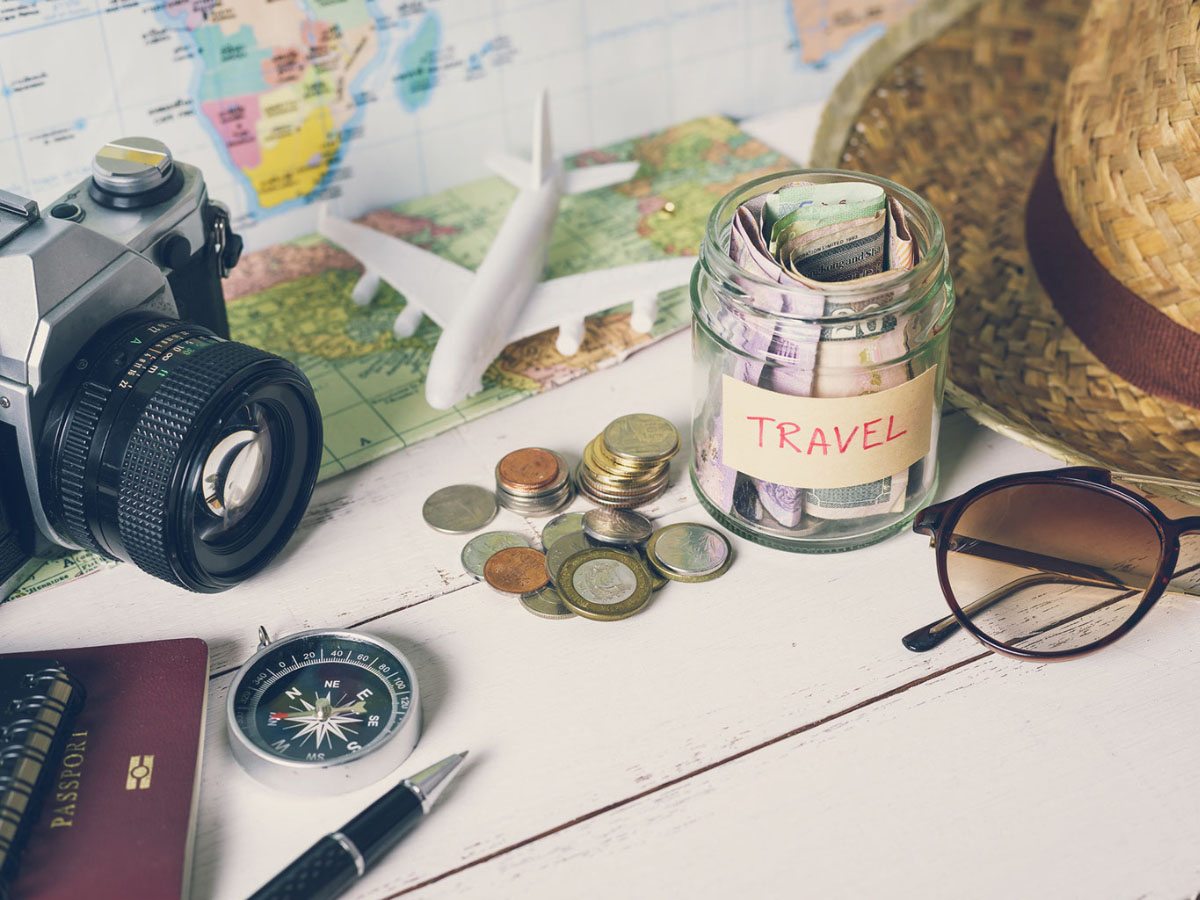Budget travel for seniors doesn’t mean sacrificing comfort or enjoyment. This guide unlocks the secrets to affordable adventures, demonstrating how older travelers can explore the world without breaking the bank. We’ll delve into finding affordable destinations, navigating transportation efficiently, securing comfortable and safe accommodation, and planning enriching activities that cater to various mobility levels. Prepare to discover a world of possibilities, proving that age is no barrier to fulfilling travel experiences.
From carefully curated lists of budget-friendly destinations considering climate and accessibility, to detailed advice on securing affordable transportation and accommodation, this guide provides a comprehensive roadmap for planning a memorable and affordable trip. We’ll explore strategies for saving money on activities, managing health and safety concerns, and even packing efficiently. Ultimately, this resource empowers seniors to embark on enriching travel adventures, tailored to their needs and budgets.
Activities and Entertainment
Budget travel doesn’t mean sacrificing enriching experiences. Seniors can enjoy a wealth of activities and entertainment without breaking the bank, focusing on free or low-cost options and leveraging senior discounts where available. This section explores ways to maximize enjoyment while minimizing expenses.
Free and Low-Cost Activities for Seniors
Many cities offer free walking tours, providing a fantastic way to explore historical districts and learn about local culture. These tours are often led by knowledgeable guides who share fascinating stories and insights. Alternatively, exploring local parks offers a relaxing and rejuvenating experience. Many parks feature beautiful scenery, walking trails, and picnic areas, perfect for a peaceful afternoon. Checking local event listings—often available through city websites or community centers—can uncover free concerts, festivals, and other community events. These events provide opportunities for social interaction and entertainment.
Finding Senior Discounts on Paid Attractions
Numerous attractions offer senior discounts, often providing a significant reduction in admission fees. It’s crucial to check the official website of any attraction you plan to visit well in advance. Many museums, theaters, and historical sites offer discounted rates for seniors aged 65 and over. Additionally, consider purchasing a city pass if you plan to visit multiple attractions. These passes often include senior discounts and can offer significant savings compared to purchasing individual tickets. Remember to always carry your senior ID for verification.
Ten Activities Suitable for Seniors with Varying Mobility
Planning activities that cater to different mobility levels ensures everyone can participate and enjoy the experience. The following list provides a range of cultural and relaxing activities suitable for seniors with varying levels of mobility:
- Visiting a botanical garden or arboretum: Many gardens offer wheelchair-accessible paths and benches for resting.
- Attending a local farmers market: A relaxed atmosphere with opportunities to sample local produce and interact with vendors.
- Exploring a historical museum: Many museums offer wheelchair access and audio guides for a more comfortable experience.
- Enjoying a scenic drive: A relaxing way to see the countryside, with opportunities for frequent stops.
- Participating in a gentle yoga or tai chi class: Improves flexibility and promotes relaxation. Look for classes specifically designed for seniors.
- Visiting a local art gallery or craft fair: Provides opportunities for cultural engagement and potentially purchasing unique souvenirs.
- Attending a matinee performance: A less crowded time to enjoy a play or musical.
- Taking a leisurely boat ride or ferry trip: Offers scenic views and a relaxing experience.
- Spending time at a senior center: Many offer various activities, social events, and opportunities to meet new people.
- Enjoying a picnic in a park: A simple yet enjoyable activity that caters to different mobility levels.
Health and Safety Considerations
Budget travel for seniors doesn’t have to mean compromising on health and safety. Prior planning and careful preparation can significantly reduce risks and ensure a worry-free trip. This section outlines essential precautions to safeguard your well-being while exploring the world on a budget.
Travel Insurance
Comprehensive travel insurance is paramount for senior travelers. It provides financial protection against unforeseen medical emergencies, trip cancellations, lost luggage, and other potential issues. Policies specifically designed for seniors often offer higher coverage limits for medical expenses, which can be particularly crucial in foreign countries where medical costs can be significantly higher than at home. Consider policies that include emergency medical evacuation, repatriation of remains, and coverage for pre-existing conditions (if applicable). It is advisable to carefully review the policy details and ensure it meets your specific needs and health circumstances. For example, a policy covering pre-existing conditions such as heart problems would provide peace of mind for individuals with such conditions.
Necessary Vaccinations and Medications
Consulting your physician well in advance of your trip is vital. They can advise on necessary vaccinations and recommend any booster shots based on your destination and health history. Additionally, discuss any pre-existing medical conditions and necessary medications. Obtain a detailed list of your medications, including generic names, dosages, and instructions, along with copies of your prescriptions. Pack sufficient medication for the entire trip, plus extra in case of delays. Consider carrying a small medical kit with essential items such as bandages, antiseptic wipes, pain relievers, and any personal medications you might need. It’s also a good idea to carry a copy of your medical records, including allergy information, with you.
Emergency Contact Numbers and Resources
Before departing, compile a list of essential emergency contact numbers, including local emergency services (e.g., ambulance, police, fire), your travel insurance provider, your family doctor, and a trusted contact person at home. For international travel, research local emergency numbers and familiarize yourself with the procedures for contacting emergency services in your destination country. The embassy or consulate of your home country in the destination country can also be a valuable resource in case of emergencies. Consider registering your travel plans with your country’s embassy or consulate, as this can facilitate assistance in case of emergencies.
Medical Emergencies While Traveling
In the event of a medical emergency, remain calm and immediately contact your travel insurance provider or the local emergency services. Clearly explain the situation, your location, and the nature of the emergency. If possible, have a companion stay with you while waiting for help. Follow the instructions provided by emergency personnel and your travel insurance provider. Keep records of all medical expenses, receipts, and communication with medical professionals and your insurance company. This documentation will be crucial for reimbursement claims. Consider carrying a medical alert bracelet or necklace indicating any pre-existing conditions or allergies, which can help medical personnel respond more effectively.
Packing Essentials for Seniors
Packing for a budget trip as a senior requires careful consideration of both practicality and comfort. The goal is to travel light while ensuring you have everything you need for a safe and enjoyable experience. This means prioritizing essential items and minimizing unnecessary baggage.
Packing light is particularly important for seniors, as carrying heavy luggage can be strenuous and increase the risk of injury. Careful planning and strategic packing techniques can make a significant difference in your overall travel experience.
Essential Medications and Medical Supplies
A comprehensive list of your prescribed medications is crucial. Remember to bring enough for the duration of your trip, plus a few extra days in case of delays. Include copies of your prescriptions and a list of any allergies. Consider carrying a small, portable first-aid kit containing bandages, antiseptic wipes, pain relievers, and any other over-the-counter medications you regularly use. A medical alert bracelet or necklace clearly stating any allergies or conditions is also highly recommended.
Clothing and Footwear
Choose comfortable and versatile clothing items that are easy to layer. Opt for lightweight, wrinkle-resistant fabrics. Pack neutral-colored clothing that can be mixed and matched to create different outfits. Comfortable walking shoes are non-negotiable; prioritize support and cushioning over style. Include a pair of comfortable slippers or sandals for relaxing in your accommodation. Consider bringing a light, waterproof jacket or raincoat, regardless of the destination’s climate.
Toiletries and Personal Care Items
Travel-sized toiletries are essential for minimizing weight and maximizing space. Transfer your preferred shampoos, conditioners, lotions, and other toiletries into smaller containers. Remember essential items such as toothbrush, toothpaste, sunscreen, and insect repellent. Consider bringing a small, portable hand sanitizer. Don’t forget any specialized personal care items you may require.
Documents and Identification
Keep all important documents organized in a readily accessible place. This includes your passport or driver’s license, flight or train tickets, travel insurance information, and any necessary visa documentation. Make copies of these documents and store them separately from the originals. Consider carrying a small notebook to record important information such as addresses, phone numbers, and emergency contacts.
Other Essential Items
A small, lightweight backpack is helpful for carrying everyday essentials such as your wallet, phone, medications, and water bottle. A reusable water bottle will help you stay hydrated throughout your journey. A universal travel adapter is essential if you’re traveling internationally. Consider bringing a small flashlight or headlamp for navigating in low-light conditions. A magnifying glass can be helpful for reading small print. Finally, a comfortable neck pillow can improve your sleep quality during long journeys.
Efficient Suitcase Organization
To maximize space and ensure easy access to essential items, use packing cubes to separate and compress clothing. Place heavier items at the bottom of your suitcase and lighter items on top. Keep frequently needed items, such as medications and toiletries, in easily accessible pockets or compartments. Consider using a toiletry bag that hangs from a hook for convenient access in hotel bathrooms. Roll your clothing instead of folding it to save space and prevent wrinkles.
Conclusive Thoughts
Embarking on budget travel as a senior is achievable and rewarding. By strategically choosing destinations, utilizing smart transportation options, and planning activities that align with personal capabilities, seniors can enjoy enriching and memorable travel experiences without financial strain. This guide provides the tools and information to make those dreams a reality, fostering a sense of adventure and independence that enriches life at any age. Remember to prioritize safety, comfort, and affordability – and most importantly, have fun!


